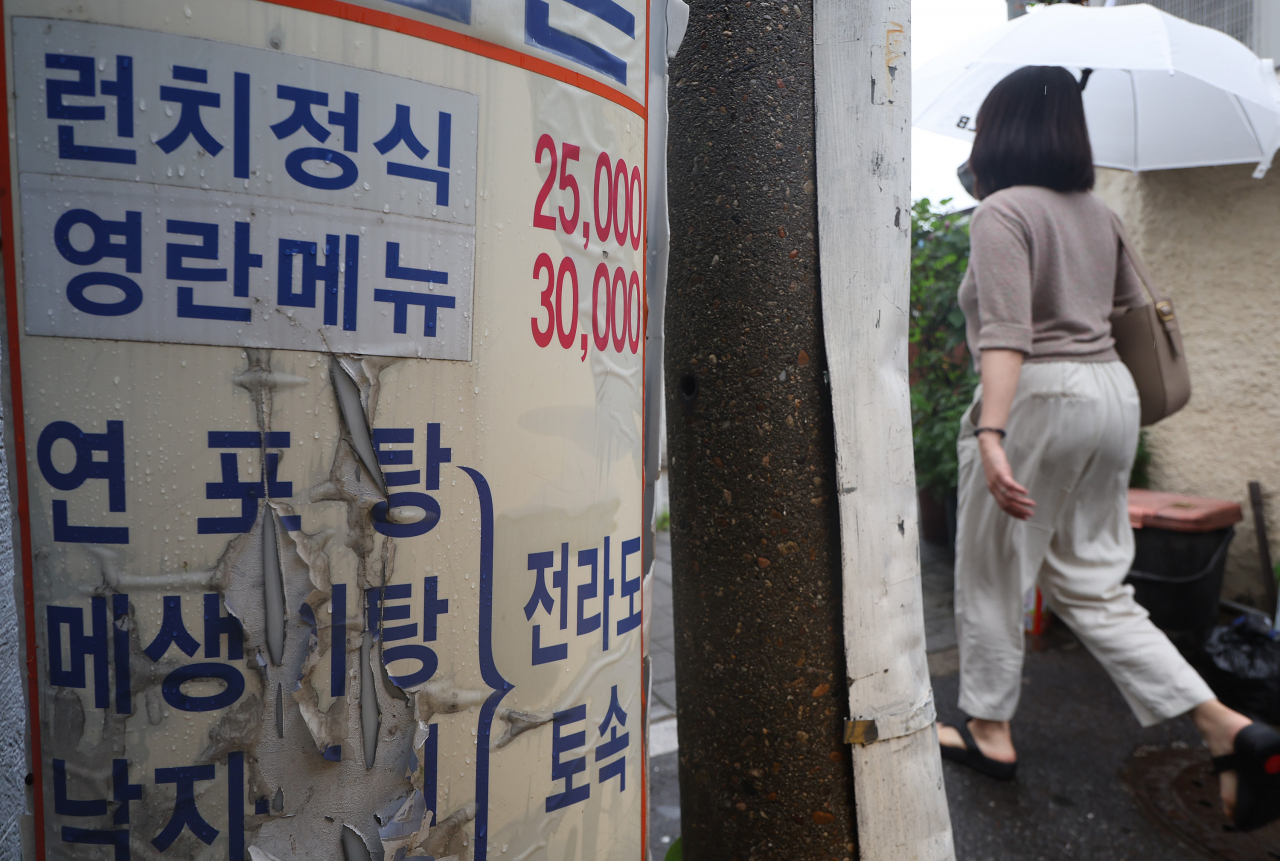 |
A sign at a restaurant in Seoul displays the price of its "Kim Young-ran menu" at 30,000 won on Monday. (Yonhap) |
The Anti-Corruption and Civil Rights Commission announced on Monday that it has decided to raise the meal expense limit for public officials from 30,000 won ($22) to 50,000 won, citing the need to reflect the country's steep inflation since the limit was set.
This proposal came eight years after the Improper Solicitation and Graft Act, also known as the "Kim Young-ran law," was implemented.
The antigraft act, named after the former Supreme Court justice who was then head of the commission, was established to curb corruption among public officials and other specific groups, such as journalists and educators. Under the act, the expense limits are set at 30,000 won for meals, 100,000 won for floral tributes and 50,000 won for gifts, with agricultural, meat and marine product gifts capped at 150,000 won.
Now that the proposal has passed in the committee, it will be transferred to a Cabinet meeting for final approval and revision of the act’s enforcement ordinance, according to the commission.
Meanwhile, at Monday’s committee meeting, the ACRC also addressed complaints about an emergency medical helicopter being used to transfer former Democratic Party of Korea leader Lee Jae-myung from a Busan hospital to one in Seoul for emergency surgery after he was stabbed in January.
The ACRC announced it has dismissed the case, citing no violation.
The commission had been investigating claims that the use of the emergency medical helicopter to transport Lee to Seoul National University Hospital had violated the Public Service Ethics Act.
Lee suffered an assassination attempt Jan. 2 while answering reporter questions at the construction site of a new airport serving Busan on Gadeok Island. He was stabbed in the neck by a man wielding a 17-centimeter-long knife, resulting in major damage to his jugular vein, requiring vascular surgery and eight days of hospitalization.
Following the stabbing, Lee was immediately taken to Pusan National University Hospital, and then airlifted to Seoul National University Hospital the same day for emergency surgery. Complaints alleged that the emergency airlifting had constituted "illegal preferential treatment" as his "life was not in danger."







![[Today’s K-pop] Blackpink’s Jennie, Lisa invited to Coachella as solo acts](http://res.heraldm.com/phpwas/restmb_idxmake.php?idx=644&simg=/content/image/2024/11/21/20241121050099_0.jpg)